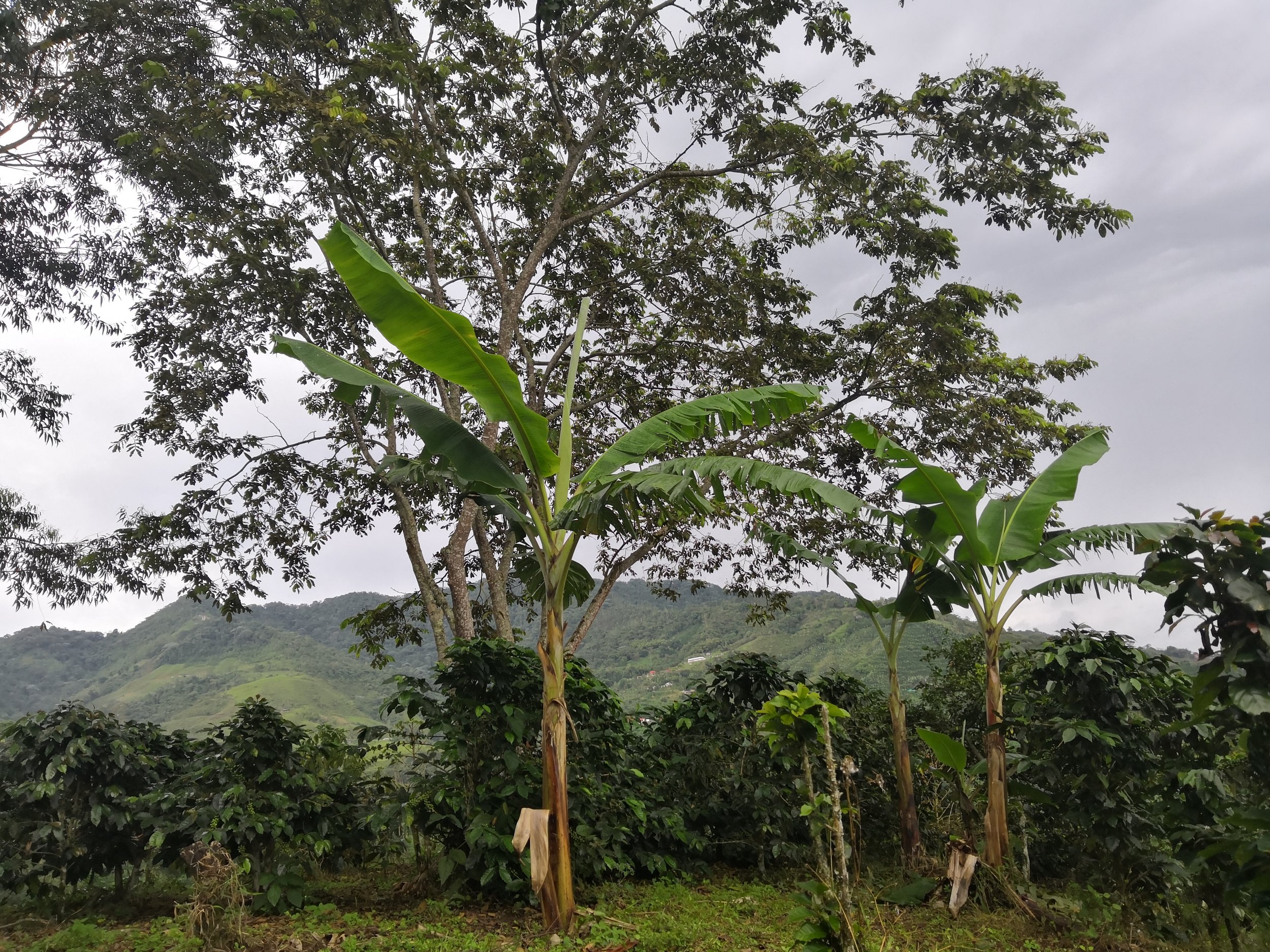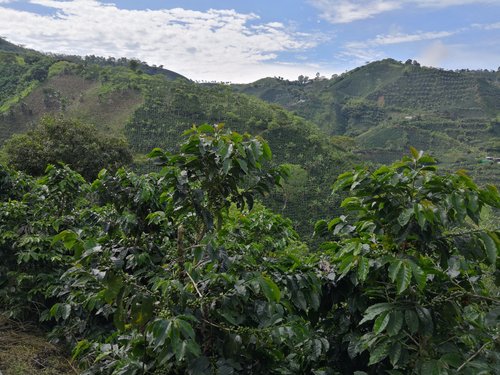INTRODUCTION
We started working with La Real Expedición Botánica (LaReb) in 2021 in the hopes of forming a direct, long term relationship for our future Colombian coffees. We were most compelled by LaReb’s diligence, honesty, and motivation to create market access for coffee producers who don’t feel represented by the current norms of international coffee trading. In an oversimplified manner, LaReb has taken the initiative and responsibility of how they process, move, sell, and share their coffees to roasters and consumers alike. In 2017 Herbert Peñaloza and Ana Mustafá co-founded LaReb, operating with the careful eye and drive of their passionate leaders.

ANA’S LEGACY
Ana comes from a long lineage of coffee growers starting when her grandfather came to Colombia from Palestine in the 1930s. After watching her father grow and sell coffee, Ana felt she needed to continue his legacy. When she was ready, she inherited his farms in La Celia and the ones he had bought in Pereira. Her focus for the farms has been to invest heavily in infrastructure and plant health. Ana currently supplies over half of the coffee exported for LaReb.
With a deep understanding of the agricultural landscape and exportation, Ana knows the mechanics of growing, selling and trading coffee. To understand more about Ana’s work we asked her specific challenges in Colombia and the industry at large.
WHAT IS THE BIGGEST CHALLENGE COLOMBIAN COFFEE FARMERS ARE FACING?
We have two structural problems in coffee production today. For a few decades we have been experiencing a shortage of manual labor in agriculture. As younger generations migrate to cities, there has been little to no generational inheritance of coffee farms. This creates a huge challenge as coffee is the most labor intensive crop in the whole country.
The second problem is climate change. In the last 4 to 5 years we have seen a huge increase in rainfall in producing regions. Unfavorable rainfall can promote conditions that cause damage to coffee plant:
-
One factor is flowering becomes more dispersed, which affects both the volume and cost of picking. Without a uniform cherry development coffee farmers have to harvest the same coffee plant multiple times, which takes more time and twice the labor.
-
Another factor is pest and disease management. Increased humidity from higher rainfall creates better conditions for pests to reproduce. This makes it harder to control pests such as the coffee bean borer.
-
Finally, rainfall increases the risk of erosion. This ultimately can lead to land and crop loss, but more importantly erodes top soil, which is very difficult to replace.
WHAT IS SOMETHING YOU WOULD LIKE TO SEE CHANGE IN OUR INDUSTRY?
I would like to see more transparency with more understanding from specific supply chain actors. Sometimes roasters post the prices they pay for their coffees and they don’t realize or document the scandalous margins some intermediaries are making. I think it is important to begin thinking about how to distribute this value add to different supply chain actors. It isn’t helpful to share how much producers are getting paid and leave out how much importers are making. There should be a way to share how much everyone is making in the supply chain. This will help to create more sustainable financial streams for all parties involved.
HOW CAN WE CLOSE THE GAP BETWEEN COFFEE FARMERS AND COFFEE CONSUMERS?
I don’t know if we can close the gap between consumers and producers. I think the responsibility lies in avoiding incorrect information, which is caused by the fragmentation in the supply chain. A lot of intermediaries use distorted and even false information that is being shared with the final consumer. It is a huge challenge to communicate the complexity of the supply chain to consumers. At the very least we should not victimize producers. It is important to understand we are fundamental supply chain actors. It is easy to think from a consuming country, we must help coffee farmers. By simply creating horizontal commerce channels, this permits the right conditions for all parties involved. We have to move away from the dialogue of colonialism, with consuming countries thinking they can change the lives of producers.
FINAL THOUGHTS
Despite the shifts that need to happen, both in how we grow and trade coffee, producers like Ana are producing phenomenal coffees despite compounding obstacles. Ana’s coffee becomes more than just a cup or an offering. Her semiment and care are values that should be shared with our community and more importantly in our industry. We hope that even this small glimpse will allow you to appreciate this coffee even more. Check out Ana’s coffee below or stop by our cafes to taste it as a pour over.






